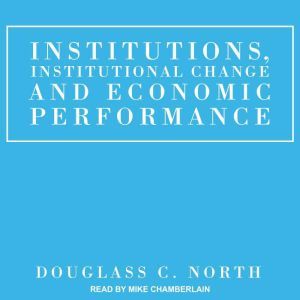

Institutions, Institutional Change and Economic Performance
Author: Douglass C. North
Narrator: Mike Chamberlain
Unabridged: 7 hr 8 min
Format: Digital Audiobook Download
Publisher: Tantor Media
Published: 12/19/2019
Categories: Nonfiction, Political Science, Political Economy
Synopsis
North first explores the nature of institutions and explains the role of transaction and production costs in their development. The second part of the book deals with institutional change. Institutions create the incentive structure in an economy, and organizations will be created to take advantage of the opportunities provided within a given institutional framework. North argues that the kinds of skills and knowledge fostered by the structure of an economy will shape the direction of change and gradually alter the institutional framework. He then explains how institutional development may lead to a path-dependent pattern of development. In the final part of the book, North explains the implications of this analysis for economic theory and economic history.


